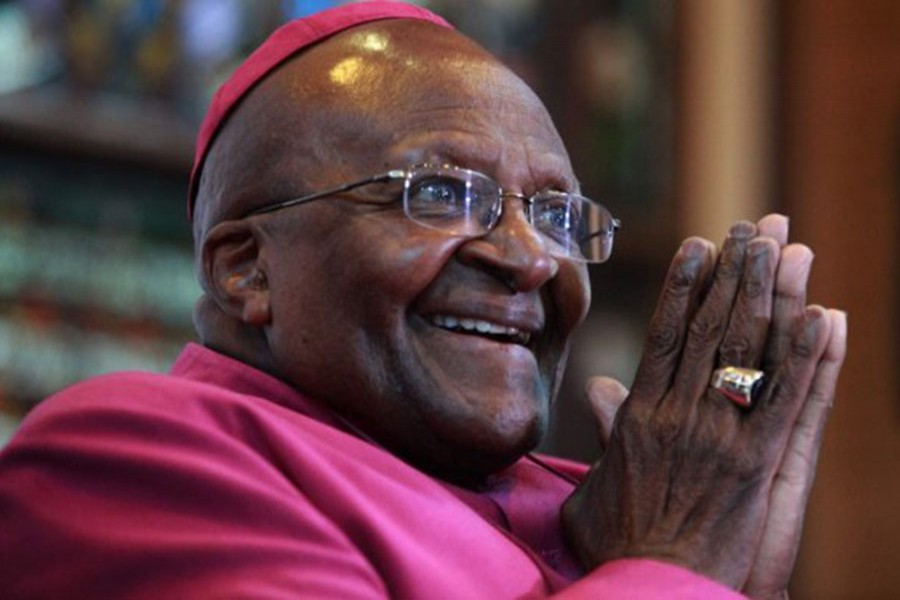Said to be South Africa's national conscience, Archbishop Desmond Tutu has been laid to rest at the St. Georges Cathedral in Cape Town. Of the many losses that humanity suffered in 2021, a notable one was the demise of Nobel Laureate Archbishop Desmond Tutu. Rightly described by Justin Welby, the Archbishop of Canterbury, a 'prophet and priest', Tutu's mission in life was to 'humanise' humanity through his struggle against apartheid, injustice and inequality. But unlike many priests preaching peace and humanity, he was an activist. He fought against the apartheid, white supremacists' minority rule in South Africa. And, of course, as a priest he was all for a non-violent struggle.
At the same time, he was uncompromising in telling what in his view was the truth. His in-your-face sense of fair play often put him at the centre of controversy. Appointed by Nelson Mandela as the chair of the Truth and Reconciliation Commission, Tutu's asking Winnie Madikizela-Mandela, a leading figure of the anti-apartheid movement and wife of Mandela, to apologise for any act of human rights abuse committed by the Mandela Football Club to which Winnie had link upset many.
The 'Club' was alleged to have been engaged in vigilantism, carrying out acts of violence including murders during anti-apartheid struggle. Many black South Africans who admired Winne as a hero of the anti-apartheid struggle could not accept Tutu's method of incriminating her (Winnie) and seeking her apology. Small wonder that the undisputed leader of South Africa, Nelson Mandela and a long-time friend of Desmond Tutu, once said about the latter, 'His characteristic quality is his readiness to take unpopular positions without fear'. And it is for such courage of conviction that he stood head and shoulders above many of his contemporaries.
So, his death has left the world short of one human being to whom truth was not a selective tool to use when convenient against one's opponent. There could not be a worse time for a voice like Tutus' to go silent. People of Desmond Tutu's and Nelson Mandela's standing had always been rare in history. And they are becoming rarer. In their time, when the world rose from the ashes of the World War II, humanity was looking forward to a new human era free from inequality and human indignities.
The West led by the USA championed human rights and democracy, and the East by communist Russia and people's democratic China calling for revolutionary changes in societies across the world to end the exploitative socio-political systems. Though both the sides were at each other's throat on ideological grounds, people still believed that there was still hope for humanity. For though their professed ideologies and methods of emancipating mankind from oppression, injustice and inequality were different, their goal was at least the same. They at least acknowledged that inequality, injustice and discrimination in society was wrong and that it can and should be removed. Unfortunately, the 21st century started with a different, ominous note.
The post-9/11 role of the West led by the USA was a clear departure from what it appeared to be in the decades between 1950 and 2000. The erstwhile champions of democracy became warlike and predatory. The world has descended to chaos since. And worse, there is state-sponsored rise in nativism, racism, majoritarianism and unabashed hate-politics everywhere. The West's voice against these dangerous developments is rather muted. If vocal at all, that, too, is selective. But where is the world's moral compass like Tutu now to guide humanity in its hour of need and say that what the world is going through at the moment is wrong?


